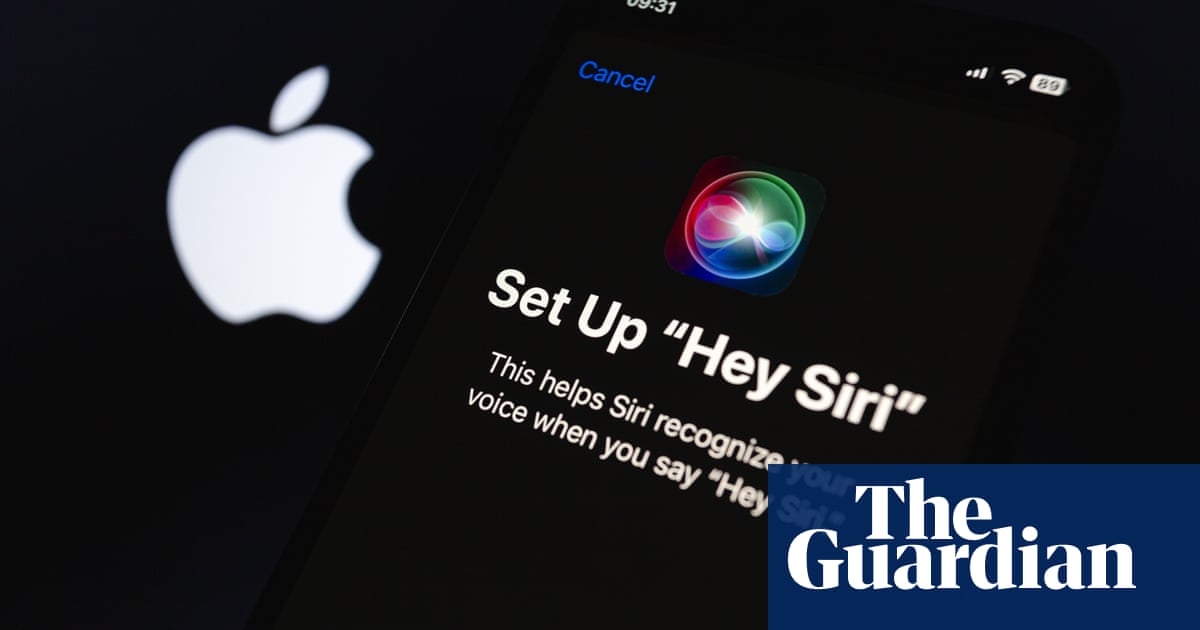Apple has agreed to pay $95m in cash to settle a proposed class-action lawsuit claiming that its voice-activated assistant Siri violated users’ privacy, listening to them without their consent.
iPhone owners complained that Apple routinely recorded their private conversations after they activated Siri unintentionally, and disclosed these conversations to third parties such as advertisers. A preliminary settlement was filed on Tuesday night in the Oakland, California, federal court, and requires approval by US district judge Jeffrey White.
Voice assistants typically react when people use “hot words” such as “Hey, Siri”. Two plaintiffs said their mentions of Air Jordan sneakers and Olive Garden restaurants triggered ads for those products. Another said he was served ads for a brand name surgical treatment after discussing it, he thought privately, with his doctor. The plaintiffs alleged Apple did not receive consent before recording their conversations and in fact could not receive consent from one of the plaintiffs because they were a minor without an Apple account at the time of the recording.
The lawsuit alleged the violations ran from 17 September 2014 to 31 December 2024. It began when Siri incorporated the “Hey, Siri” feature that allegedly led to the unauthorized recordings. Class members, estimated in the tens of millions, may receive up to $20 per Siri-enabled device, such as iPhones and Apple Watches.
Apple denied wrongdoing in agreeing to settle. The company has persistently emphasized the importance it places on privacy. In 2018, Apple’s CEO, Tim Cook, accused other tech companies of surveillance and said “[t]he desire to put profits over privacy is nothing new.” The company furthered contended in a letter to Congress in 2018 that Apple’s iPhone devices do not “listen” to users except to detect the audio trigger “Hey Siri.”
But in a 2019 Guardian report, which the original complaint cites, an Apple whistleblower said that contractors regularly heard private user conversations when conducting quality assurance on Siri. Those conversations included confidential medical information, drug deals and recordings of couples having sex. Some of those conversations were recorded by mistake, the whistleblower said, because Siri can mistake things like a “sound of a zip” for the wake word.
At the time, Apple said only a “small portion” of Siri requests are graded for quality and those requests are not associated with the user’s Apple ID: “Siri responses are analysed in secure facilities and all reviewers are under the obligation to adhere to Apple’s strict confidentiality requirements.” The company later paused the quality improvement program and stopped recording audio by default.
The Cupertino, California-based company and its lawyers did not immediately respond to requests for comment on Thursday. Lawyers for the plaintiffs did not immediately respond to similar requests. They may seek up to $28.5m in fees, plus $1.1m for expenses, from the settlement fund.
after newsletter promotion
The $95m is about nine hours of profit for Apple, whose net income was $93.74bn in its latest fiscal year.
A similar lawsuit on behalf of users of Google’s Voice Assistant is pending in the San Jose, California, federal court, in the same district as the Oakland court. The plaintiffs are represented by the same law firms as in the Apple case.

